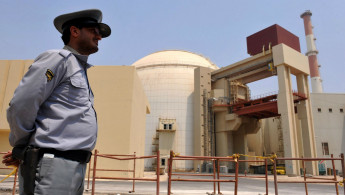Iran deploys missiles 'to defend' nuclear facility
Protecting nuclear facilities is paramount "in all circumstances" General Farzad Esmaili, the commander of Iran's air defences, told the IRIB channel.
"Today, Iran's sky is one of the most secure in the region," he added.
A video showed an S-300 carrier truck in Fordo, raising its missile launchers toward the sky, next to other counter-strike weaponry.
Israeli leaders have repeatedly vowed to strike facilities they believe Iran might be using to develop a nuclear bomb.
The country also strongly opposed a nuclear deal between Iran and Western powers, and Tehran's detente with the US.
Iran recently unveiled its own homegrown surface to air missiles, that could be used against enemy aircraft.
Militarism
The images were aired hours after supreme leader Ayatollah Ali Khamenei gave a speech to air force commanders, including Esmaili, in which he stressed that Iranian military power was for defensive purposes only.
"Continued opposition and hype on the S-300 or the Fordo site are examples of the viciousness of the enemy," Khamenei said.
"The S-300 system is a defence system not an assault one, but the Americans did their best for Iran not to get hold of it."
The Fordo site, built into a mountain near the city of Qom has stopped enriching uranium since the January implementation of a nuclear deal with world powers.
Under the historic accord, Iran dismantled most of its estimated 19,000 centrifuges - giant spinning machines that enrich uranium, keeping only 5,000 active for research purposes.
Iran and the US, UK, China, France, Germany and Russia negotiated for more than two years before signing a historic July 2015 agreement that removed some international sanctions in return for curbs on Tehran's controversial atomic programme.





 Follow the Middle East's top stories in English at The New Arab on Google News
Follow the Middle East's top stories in English at The New Arab on Google News


